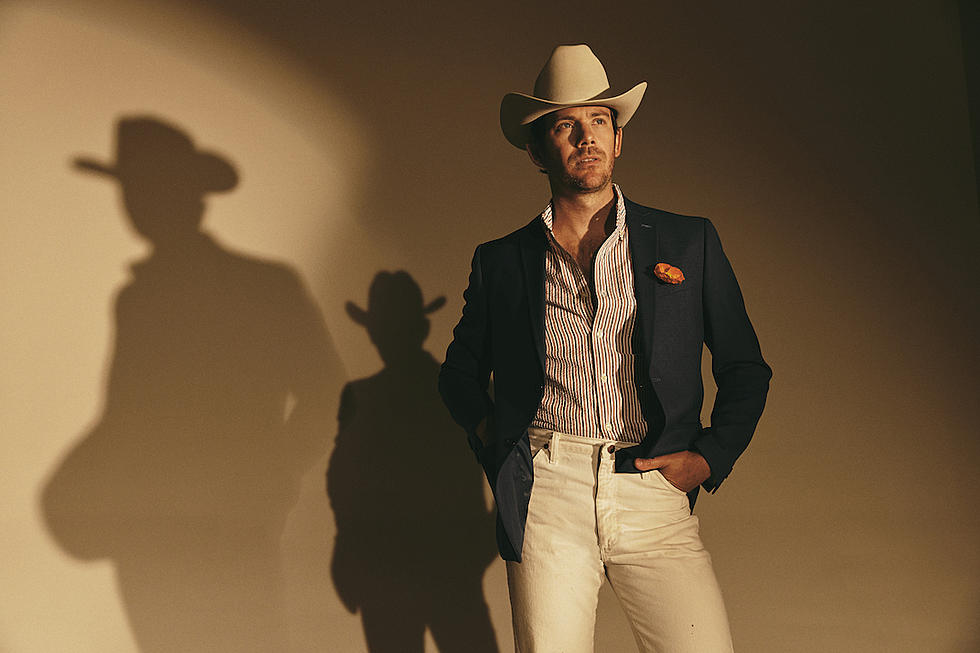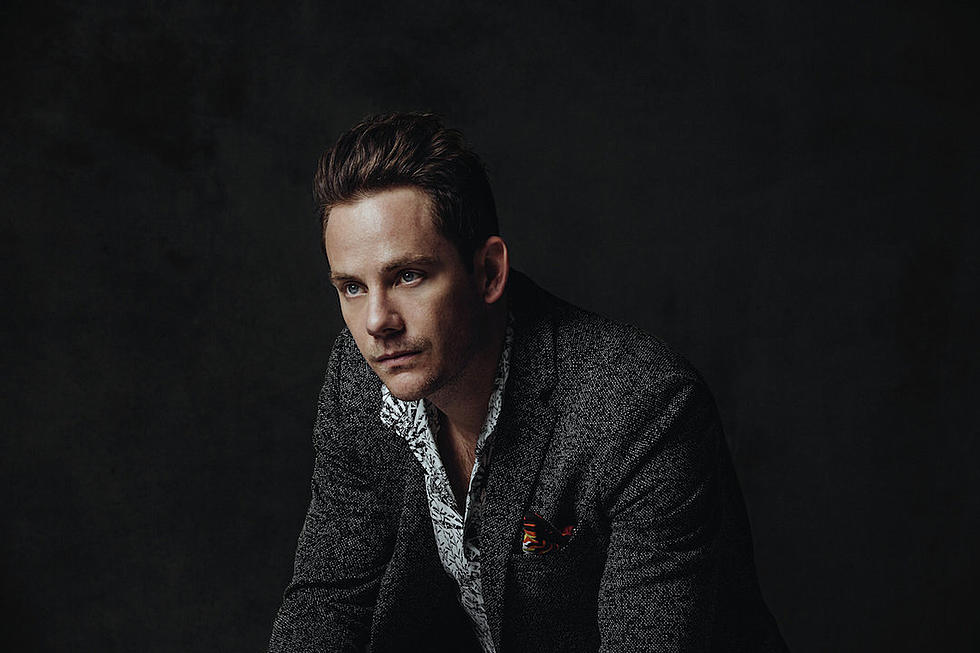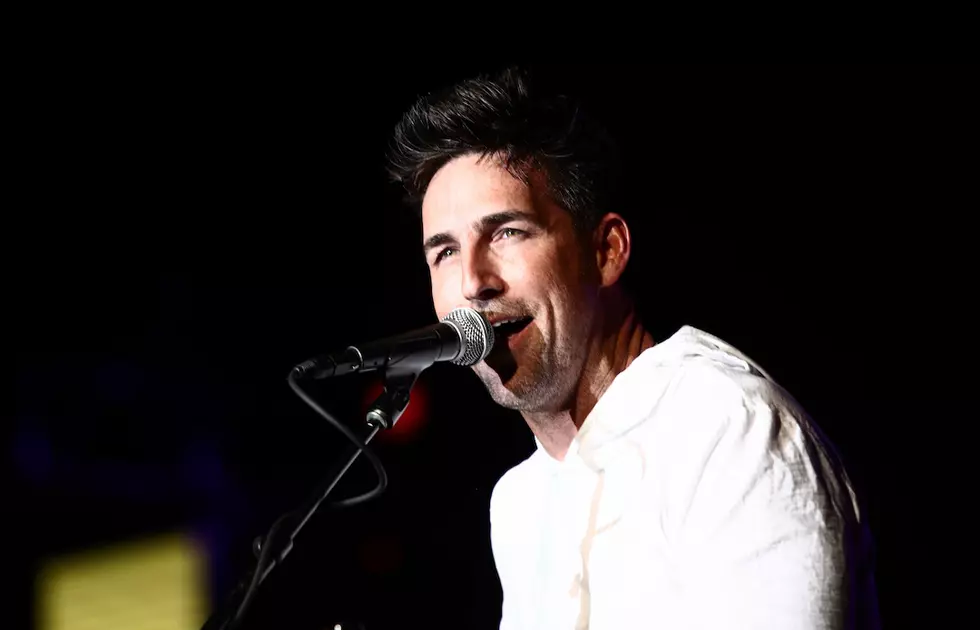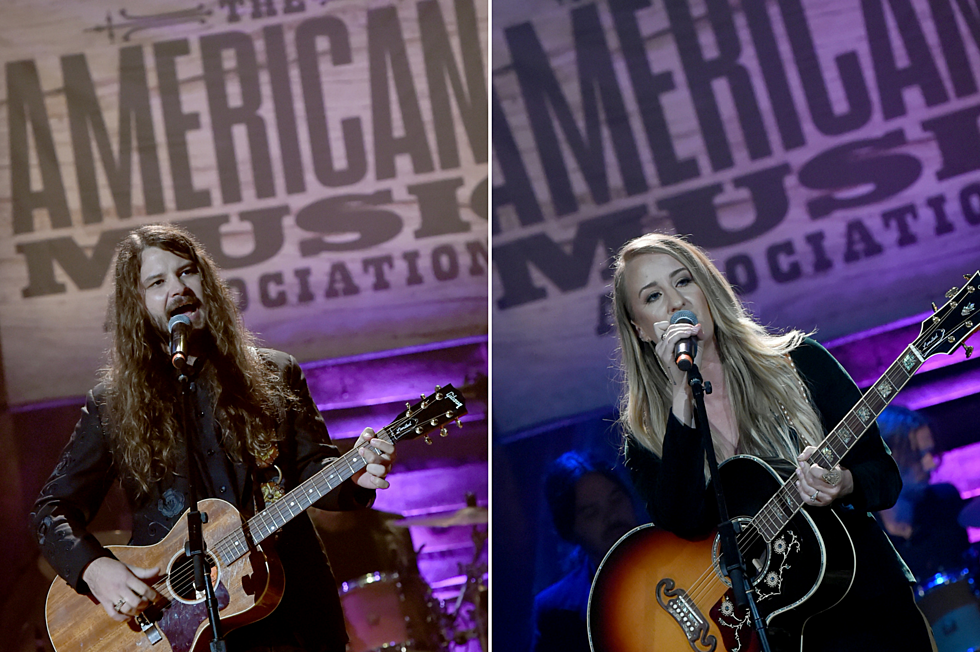
Interview: Sam Outlaw Builds His ‘Arenacana’ Sound on New Album, ‘Popular Mechanics’
"Thank God I finished this record."
Sam Outlaw's sentiments are loud and clear as he discusses his genre-defying new album, Popular Mechanics, out Friday Nov. 12. Outlaw describes his typical postpartum depression after completing an album, but with his latest, there has been nothing but relief and joy.
"It's been four and a half years since I released a full-length record," he explains, "so this has been all joy. It's a big musical departure for me, it's a leap, but it's what I needed to do."
That departure was evident when Outlaw released the first single from Popular Mechanics, "For the Rest of Our Lives," in August. And upon its release, he did something he never does: he looked at the YouTube comments.
"Most of them were actually positive," he says with a laugh. "Of course, there were some people who said, 'Man, Nashville got a hold of you and now you're turning pop.' It's so funny to me that people think I all of a sudden started meeting with these big-time record producers as soon as I got to Nashville. I'm a 39-year-old father of two. The ship has sailed on me being a pop star."
Comments like that stem from Outlaw's move from Los Angeles to Nashville in 2018, but Popular Mechanics is influenced by California as much as it is by Tennessee. "It would be a misunderstanding if people listen to this record and think, 'Oh, this is his Nashville record,'" Outlaw explains. "That's not a fair classification. Yes, the record was mostly made in Nashville, but I started conceiving of this record after some sessions we did in southern California a few years ago."
Outlaw started playing music with a country band in 2009 and that's when he began writing most of the songs that ended up on Angeleno, which wasn't released until 2015. "By the time it came out, I don't want to say I was beyond that sound, but I had already moved on," he admits. "My musical diet changed. It shifted. It became the '80s music I grew up on."
Those influences didn't show up much on 2017's Tenderheart, but now, Outlaw has embraced the freedom to explore and celebrate them on Popular Mechanics.
"When it came time to make this new album, I think I was trying to have one foot in the safe place of stuff I knew my fans would like and be comfortable with," he says, "and one foot in the new territory of what I consider a fuller view of my influences and the kind of music that I like to listen to."
The turning point for Outlaw to put both feet firmly in that fuller view of his influences came after those 2018 recording sessions in southern California. "I took a step back and I heard myself trying to break out of this ground that I had been treading [since 2009]," Outlaw admits. "I could hear myself wanting to give a more widescreen view of my interests and influences and the music that I find exciting."
Thanks to that revelation, Outlaw decided to go all in.
"I put aside questions of what would this do to my career or my fanbase, and instead, I said, I'm going to be the one up on stage playing these songs, so I need to find what makes me excited," he says. "If I'm bored, the audience will be bored."
I need to find what makes me excited. If I'm bored, the audience will be bored.
When Outlaw considers what makes him excited, his mind immediately goes to 1986, the year Top Gun came out. "At some point, that VHS tape got back to our house and all of a sudden I'm hearing Kenny Loggins and Berlin," he says, crediting his older brother with introducing him to this and so much other music.
"I was exposed to such a variety of music," Outlaw admits about growing up in the '80s and '90s. "I had a father who loved jazz and The Beatles. I was exposed to '60s and '70s classic rock. Miles Davis. Western swing. And I was hearing everything on the radio at the time, too. There is too much of a variety of the music I love to continue making songs that sound like early-'70s country rock. As much as I love that music, I love so many other things, and I had to explore that."
I wanted to go big and do something with more energy
As Outlaw began to explore these things and knew he was ready to make an album, he partnered with multi-instrumentalist and producer Cheyenne Medders, who he first approached backstage at the Opry and pitched his album as "Arena-cana" as opposed to Americana.
"I wanted to go big and do something with more energy," Outlaw explains. "I'm singing at a higher register on Popular Mechanics. I wanted to push myself but also didn't want to sound like I was parodying arena rock. I wanted to take these '80s influences without making it sound like I was doing a parody. It was important to me to use my voice and sing these songs as truthfully and energetically as I could. I wanted to challenge myself."
Medders met Outlaw in that challenge.
"It was a dream to work with Cheyenne," Outlaw says, proudly. "He's an absurdly talented multi-instrumentalist; he's playing something on every tune and there are some songs where Cheyenne is playing every instrument. He programs the drums. He plays the synths. He plays the fretless bass. And he allowed me freedom to explore. There were very few times—maybe not a single time—where he pushed back on at least trying something. If I was on the fence about something, he was good about saying what he thought, and that was usually the tiebreaker."
Medders and Outlaw approached building Popular Mechanics like architects; Outlaw would send him a demo, Medders would add a placeholder drum track and maybe a little bass and guitar, and then Outlaw would go into his studio and they'd dive into it from there. "Cheyenne had the genius and the perspective to make it all come together," Outlaw says. "It was like we were building a building. We started with the foundation, sketched it out, and then built it from there."
While much of that foundation lies in the sound of Popular Mechanics, it is also steeped in Outlaw's relationship with his father.
Thanks to a conversation with his dad, Outlaw started to put together the power of engineering with the beauty of recorded music. "My dad is a mechanical engineer and I come from a family of engineers," Outlaw describes. "My brother is an engineer. My mother's father, Harry Outlaw, was an engineer, so it's on both sides of the family. For engineers, you have to care about and know how things work, and with art, it's the engineering and science mixed with the art that makes any piece of art possible. That kind of became my theme, and it came out of those conversations with my dad."
That theme is explored and beautifully captured throughout Popular Mechanics, but it is perhaps most unforgettable in the opening three-song movement of "Here on a Mission," "Popular Mechanics," and "Half a World Away." Outlaw actually wanted the title-track to open the album, but decided that it best followed "Here on a Mission."
"I put a lot of thought into the sequencing of this album," Outlaw says, which isn't a surprise considering the painstaking care with which he and Medders approached Popular Mechanics.
"I still don't know how people are going to take this whole album, but that's not why I made it. That's not why I cared so much about it. I didn't make it to sound like Tenderheart or Angeleno. It feels more exciting this time."
More From TheBoot




![Chris Janson’s ‘Say About Me’ + 9 More New Songs You’ve Got to Hear [LISTEN]](http://townsquare.media/site/623/files/2019/07/chris-janson2.jpg?w=980&q=75)




